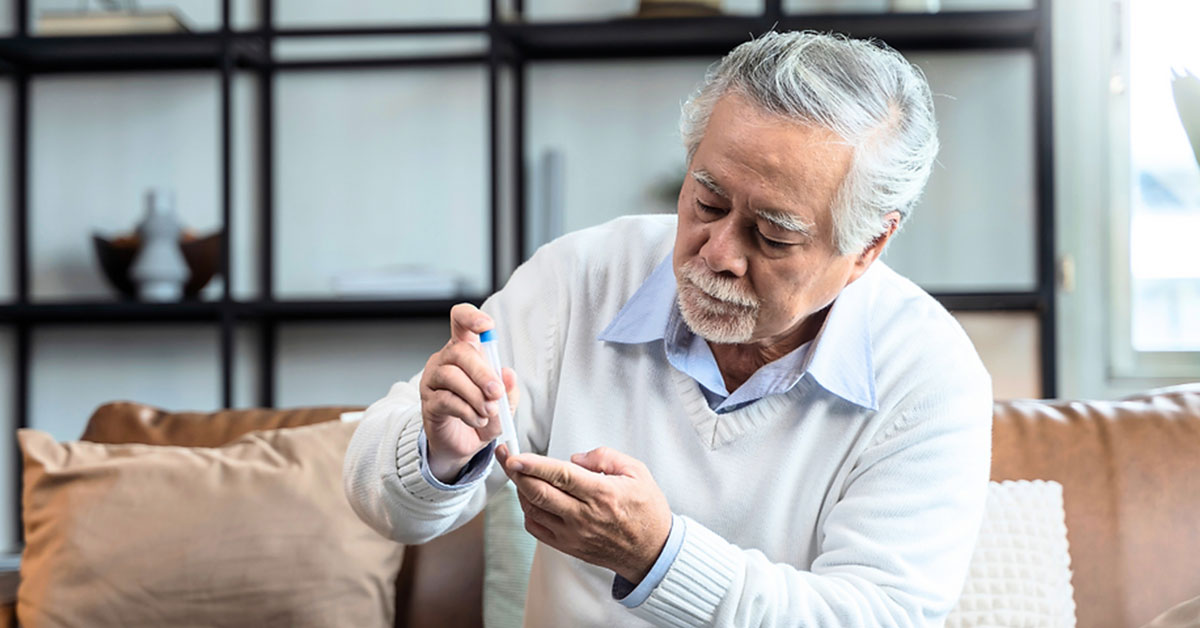In the realm of men’s health, diabetes is a significant concern, affecting not only blood sugar levels but also various aspects of overall well-being. One such area that often gets overlooked is sexual health. Diabetes can have a profound impact on men’s sexual function, causing a range of issues that can affect intimacy and relationships. Understanding this connection is crucial for managing diabetes effectively and maintaining a satisfying quality of life.
The Physiology Behind the Connection: To comprehend how diabetes influences men’s sexual health, it’s essential to delve into the physiological mechanisms at play. Diabetes, particularly when poorly controlled, can damage blood vessels and nerves throughout the body. This damage extends to the genital area, affecting the ability to achieve and maintain erections—a condition known as erectile dysfunction (ED). Moreover, diabetes can reduce testosterone levels, further exacerbating sexual dysfunction.
Erectile Dysfunction: A Common Consequence: Erectile dysfunction is perhaps the most well-known sexual issue linked to diabetes in men. Studies indicate that men with diabetes are more likely to experience ED compared to those without the condition. The damage to blood vessels and nerves disrupts the normal process of achieving an erection, making it difficult to sustain satisfactory sexual intercourse. This can lead to frustration, stress, and strained relationships if not addressed effectively.
Reduced Libido and Testosterone Levels: Beyond erectile dysfunction, diabetes can also contribute to a decrease in libido or sex drive. The hormonal imbalance resulting from diabetes-induced damage to the endocrine system can lower testosterone levels, reducing sexual desire. This decline in libido can further diminish sexual satisfaction and interfere with intimate relationships, affecting both physical and emotional well-being.
Psychological Impact: The effects of diabetes on sexual health extend beyond the physical realm to encompass psychological factors as well. Dealing with erectile dysfunction, reduced libido, or other sexual issues can lead to feelings of inadequacy, embarrassment, and depression. These negative emotions can create a vicious cycle, exacerbating the problem and making it even more challenging to address. Therefore, addressing the psychological impact of diabetes on sexual health is integral to holistic management.
Effective Strategies for Managing Diabetes-Related Sexual Issues: While the connection between diabetes and sexual health can seem daunting, there are various strategies available to manage and mitigate these issues effectively:
- Maintain Optimal Blood Sugar Levels: Keeping blood sugar levels within the target range is crucial for preventing or minimizing the complications associated with diabetes, including sexual dysfunction. This may involve a combination of medication, dietary changes, exercise, and regular monitoring.
- Healthy Lifestyle Practices: Adopting a healthy lifestyle can significantly impact both diabetes management and sexual health. This includes regular exercise, a balanced diet rich in fruits, vegetables, and whole grains, adequate sleep, and stress management techniques such as meditation or yoga.
- Medication and Therapies: In cases where lifestyle modifications alone are insufficient, medications or therapies may be prescribed to address specific sexual issues. These may include phosphodiesterase type 5 (PDE5) inhibitors for erectile dysfunction, testosterone replacement therapy for low testosterone levels, or counselling to address psychological factors contributing to sexual dysfunction.
- Open Communication: Effective communication with healthcare providers and partners is essential for addressing diabetes-related sexual issues. Healthcare professionals can offer guidance, support, and appropriate treatments, while open communication with partners can foster understanding, empathy, and collaborative problem-solving.
Conclusion: In conclusion, diabetes can have a significant impact on men’s sexual health, leading to issues such as erectile dysfunction, reduced libido, and psychological distress. Understanding the physiological and psychological mechanisms underlying this connection is essential for effectively managing diabetes-related sexual issues. By implementing strategies such as maintaining optimal blood sugar levels, adopting a healthy lifestyle, exploring medication or therapies, and fostering open communication, men can mitigate the impact of diabetes on their sexual health and enhance overall well-being. With proactive management and support, individuals with diabetes can lead fulfilling and satisfying intimate lives despite the challenges posed by the condition.










